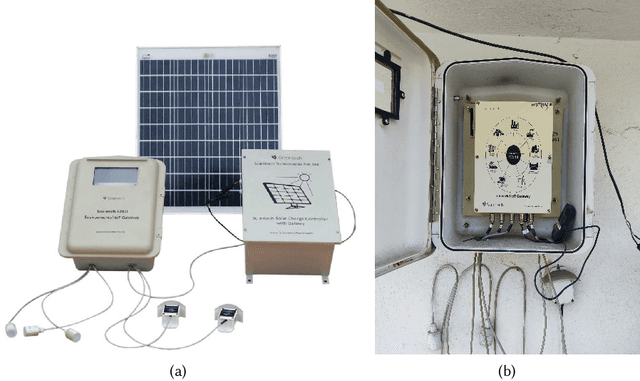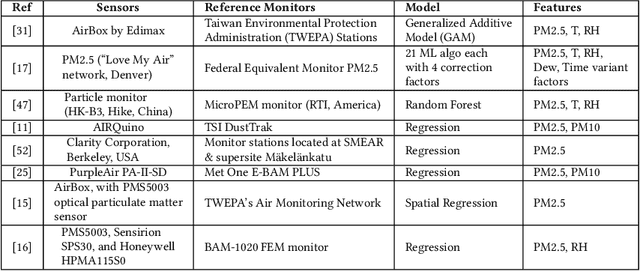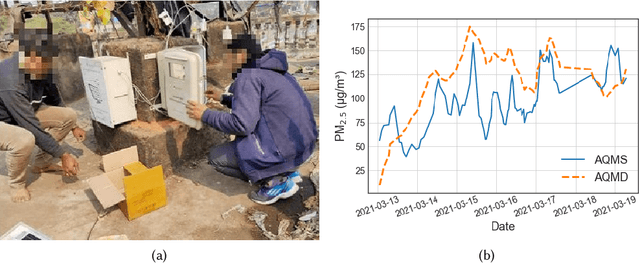AQuaMoHo: Localized Low-Cost Outdoor Air Quality Sensing over a Thermo-Hygrometer
Paper and Code
Apr 25, 2022



Efficient air quality sensing serves as one of the essential services provided in any recent smart city. Mostly facilitated by sparsely deployed Air Quality Monitoring Stations (AQMSs) that are difficult to install and maintain, the overall spatial variation heavily impacts air quality monitoring for locations far enough from these pre-deployed public infrastructures. To mitigate this, we in this paper propose a framework named AQuaMoHo that can annotate data obtained from a low-cost thermo-hygrometer (as the sole physical sensing device) with the AQI labels, with the help of additional publicly crawled Spatio-temporal information of that locality. At its core, AQuaMoHo exploits the temporal patterns from a set of readily available spatial features using an LSTM-based model and further enhances the overall quality of the annotation using temporal attention. From a thorough study of two different cities, we observe that AQuaMoHo can significantly help annotate the air quality data on a personal scale.
 Add to Chrome
Add to Chrome Add to Firefox
Add to Firefox Add to Edge
Add to Edge